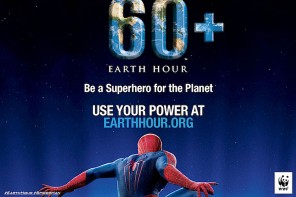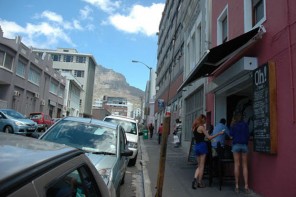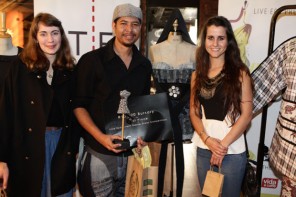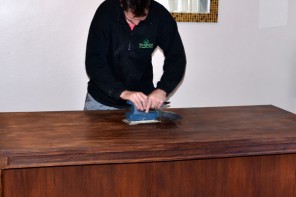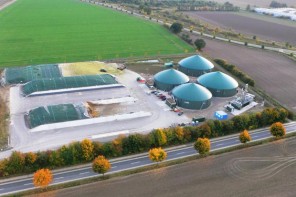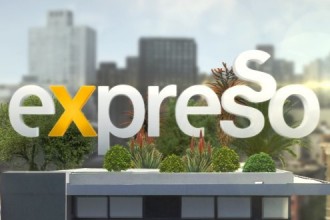Written by: Rob Peters
After they have spent decades assaulting the planet, it is hard to imagine those that govern us – or to be honest ourselves – are going to be doing anything to reverse the process. Call me a cynic, but the bulk of the world’s population born before 1985-ish are blind to the problem.
In my opinion, the world’s future lies in the generation that is starting to make its mark now. Education is key to reversing the damage done, sustaining that process is even more vital. Handing the reins to both our children and those that educate them is an obvious solution and one that is being used with great success by the Eskom Energy and Sustainability Programme – a partnership program between Eskom and WESSA – being run across South Africa.
Started in 1995 as the Eskom Enviro Competition – a countrywide competition that had schools entering enviro projects regionally, with the winners going onto a national final – the competition aspect was dropped in 2001 in order to provide better support to educators and learners in environmental issues.
The earlier incarnation of the programme found that more than half the time was spent getting the children ready to present judges, rather than actually teaching them about environmental issues, which resulted in the core objectives not being reached. A framework was put in place to support educators with projects, detailing all the phases that needed to be gone through in order to fully understand environmental issues.
With around 150 projects currently running across SA, based on this framework, and supported by the Energy and Sustainability Programme, there has been a fantastic amount of success. By building strong relationships with the educators at the respective schools, and finding ways to support them along the way, the communities have responded positively to the programme and sustainability is often high.
The programme has had some fantastic successes, with a wide variety of their projects, which utilize vastly different methods, which in turn are handled by an equally varied group of co-ordinators, all of whom bring a different dimension to their projects.
It is the human element, and the desire to build strong bonds and get the communities buying into the projects that result in the prolonged sustainability of them. To list them all would blur the picture, but I have chosen two to highlight the work being done.
The first was run with Grade 3 kids at the John Wesley school in Natal, where through the help of project co-ordinator, Cherise Acker-Pritchard and Mathew Sithole, from Twinstreams Environmental Education Centre, they wanted to clean up the waste around their school and started a competition to achieve it.
Each grade was given a different area to clean up, the cleanest would win. It was simple and effective way to combat the problem. The initial part of the project led to the kids cleaning up the community around the school as well as they took ownership of the situation.
Remember, these are kids…
It didn’t stop there. The children who continued to drive the process began to educate the community and they got media attention from it as well. In 2005, they recycled paper and cans to make compost, but realised that they were unable to do the same with glass. After brainstorming the issue, they decided to use the bottles as bricks for what they called the ‘Eco Bench‘, which were to be used by the pre-schoolers during break.
They did not buy any resources, instead relying on what they had at their disposal to build the benches. They saved on cost and resources in the process.
THESE ARE KIDS!
Of course, they had help, but it highlights how a little community outreach and some guidance can lead to big things.
Strong partnerships are vital with these projects and the “Blueprint for a Rural Sustainability Commons in South Africa” is a perfect example of that. Co-ordinator Phillip Wilkinson partnered with the Chris Hani municipality to great effect and the results have been incredible.
A Sustainability Commons is described as “a rich and diverse pool of sustainability-focused technologies, tools and learning; whose resources are deployed locally for the benefit of the community and the environment. “
The Chris Hani District Municipality is incredibly disadvantaged, lacking in basic services like reticulated water, electricity and sanitation. Four years ago, the first Sustainability Commons was developed in the district, a local rural school, which under guidance from government and non-government support, developed appropriate (and demonstrable) renewable energy technologies.
These technologies have been replicated in the local community, learning and resources have been made available, and the commons concept has succeeded in making the leap to the community.
The buy-in from the community has been overwhelming. And since the development of the first Sustainability Commons, three more have been developed in the Municipality as other rural schools in the area followed suit.
It is another example of the need for education in the sector in environmental issues.
The Eskom Energy and Sustainability Programme is now set to expand with a focus on adult education the next logical step. The co-ordinators are now beginning to look at young entrepreneurs, offering them support to start environmentally secure small businesses; climate change education in FET Colleges; and the establishment of plant nurseries and orchards in communities (edible plant networks).
The liveeco team

